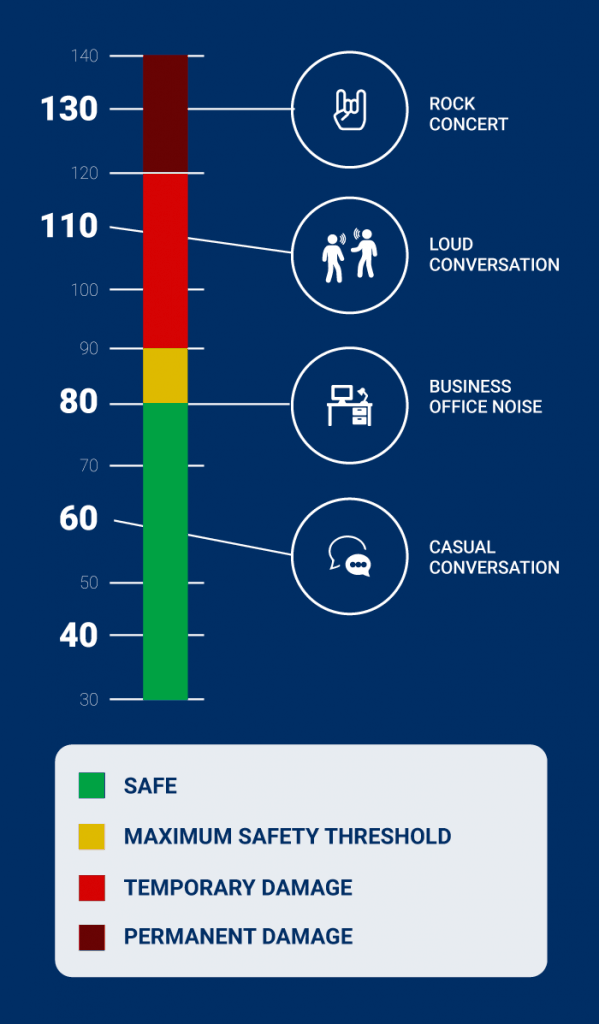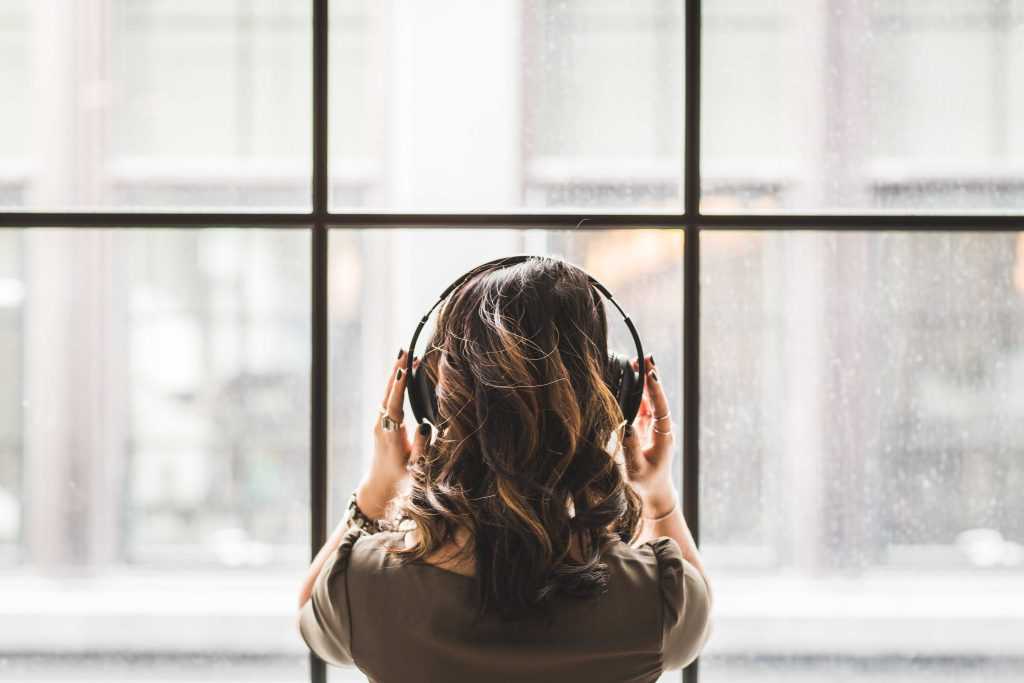How many times have you covered your ears and realized noise is still performing a solo on your eardrums? Countless. And how many times did you do that at work? Also countless.
Noisy environment is one of the main stress triggers for employees and has a negative impact on productivity. Fighting it is difficult because you can’t leave the workspace or cancel your work plans just because there’s noise surrounding you. Common practices like yelling at others to hear you or asking them to keep quiet are also barely effective.
[demo-new]
Here’s where to start from.
How do you define a noisy environment?
You may be in a noisy environment, but you can’t always tell if it’s harmful or not, so let’s break this down real quick.
Noise consists of infinite single sources frequencies. Human ear audible frequency range is from 20Hz up to 20000Hz (above that are ultrasounds). Typical speechless noise activities in a business office are about 65 decibels, and a casual conversation in a quiet area is around 60 decibels.

Sounds higher than 85 decibels are damaging to human ear. Now imagine a bunch of casual conversations happening in your office. Also note that loud conversations with some yelling reach up to 90-95 decibels.
I’ll give you a moment to realize what your ears endure on a daily basis.
By the way rock concerts are about 130db, which can cause permanent ear damage, but that’s just a side note. No one probably would miss their favorite bands performing simply to preserve hearing.
What happens when you’re exposed to a noisy environment?
Having an adequate amount of signal-to-noise ratio in a noisy area is difficult, because people often assume that the louder they speak the higher is their chance to be heard.

For the conversation to be understood the speech signal needs to exceed background noise, however the noise exposure from loud conversation is still damaging, and there’s a limit to how long you can shout.
The inner ear has sensory cells and nerve fibers that only work properly if the sound is low or moderate. So if you boost the sound through amplification, the signal in your inner ear will be distorted and you won’t understand easily, no matter how hard you try.
Exposure to loud sound over a course of time leads to a noise-induced hearing loss (NIHL).
According to a 2017 study conducted by the Centers for Disease Control and Prevention (CDC) 19% of young adults in the U.S. (aged 20-29) had unilateral and bilateral audiometric notches, while 4% of them had an audiometric notches which occurred from noise-induced hearing loss. Judging by this, 40 million U.S. adults may have noise-induced hearing loss.
What’s also important to know is that 33% of adults (aged 20-69) had an audiometric noise notch and reported to be exposed to loud noise at work.
So, getting noise-induced hearing loss is probable if you’re exposed to working in a noisy environment for a while. The thing is, how can you know if it’s damaging you?
How to understand if the noise is damaging to your ears
Pay close attention to how you feel in your workspace. Often times you may feel like the sound is not harmful, and you might ignore some of the warnings your brain gives you. Noise-induced hearing loss can occur even if you’re exposed to moderate level of sound for a longer time, rather than loud sounds in short time.

Your hearing may be affected if:
- You have trouble talking or hearing others when the loud sound is present.
- The sound of the person you talk gives you a piercing feeling in the ear.
- Your ears begin to hurt when you listen to the sound
- Your ears begin to ring after you hear the sound.
- Moderate level sounds seem dull and muted.
Have you ever encountered any of these issues in your daily work life?
How to communicate in the noisy environment
It’s important to try and block out the noise as much as possible, so here’s what you can do:
- Get hearing protectors, which are earmuffs that use padding to cover your ears and passively cancel out the noise.
- For additional measures, you can look for noise cancelling headphones that have active noise cancellation feature, which will help block out side conversations. Some models allow you to have a conversation when the headphones are on. Note: they will not damage your hearing.
- Come up with some hand signs and signals for your most used phrases or words to be able to effectively communicate with your coworkers, instead of yelling at each other over the loud sound.
- Take frequent silence breaks throughout the work day. Don’t substitute the silence with music trying to block out the noise. Silence is more likely to positively affect your productivity as it helps to focus.
- Get yourself a noise cancelling tool called Krisp that won’t let others hear your noise if you happen to have a conference call. The same way you will be able to get rid of the noise coming from other participants through the call.
- If you can, suggest a policy throughout the office where everyone will keep quiet for an agreed amount of time and in the agreed place. This will help you and your coworkers focus on work rather than get distracted from side conversations.
Noisy environments are tough to deal with, but with this knowledge you can beat it in the smart way. Preserve your hearing and stay productive!


